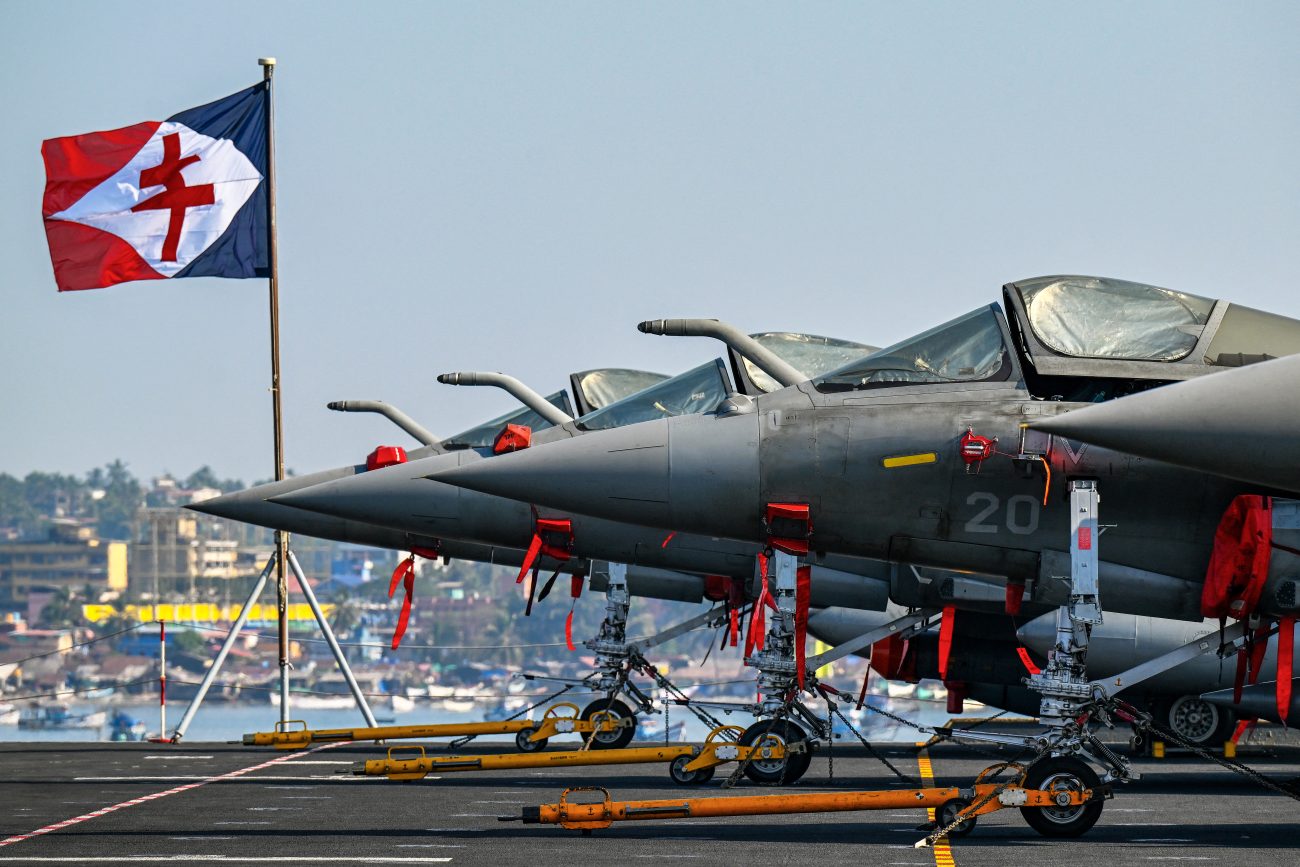When people hear the name Thales, they usually think of fighter jets, radar, and electronic warfare. The French defense giant is best known for providing the electronics backbone of the Rafale, a fighter jet that has become a symbol of France’s aerospace industry.
But a new investigation by Amnesty International shows that Thales is also quietly connected to something far less celebrated – Pakistan’s notorious digital firewall.
According to Amnesty’s report “Shadows of Control,” Pakistan’s mass surveillance programs are not homegrown. They rely on a hidden supply chain that stretches across Germany, France, the UAE, China, Canada, and the United States.
The year-long investigation was conducted with Paper Trail Media, DER STANDARD, Follow the Money, The Globe and Mail, Justice For Myanmar, InterSecLab, and the Tor Project.
Together, they tracked how Pakistani authorities obtained advanced technology through a hidden supply chain of surveillance and censorship tools.
At the heart of this system sit two programs: the Web Monitoring System (WMS) and the Lawful Intercept Management System (LIMS). Together, they form the backbone of Pakistan’s internet surveillance architecture.
Building Pakistan’s Firewall
Pakistan’s national firewall, known as the Web Monitoring System (WMS), has gone through several iterations. The first version, set up in 2018, was built on technology from the Canadian company Sandvine, now operating as AppLogic Networks.
For a few years, Sandvine provided the backbone of the system. Trade records even show that as early as 2017, the company had shipped equipment to at least three Pakistani firms with government ties: Inbox Technologies, SN Skies Pvt Ltd, and A Hamson Inc. But when Sandvine pulled out in 2023, Pakistan quickly looked elsewhere.
That “elsewhere” turned out to be China. Beijing’s Geedge Networks stepped in, providing what Amnesty International refers to as WMS 2.0. Much of the hardware for this new system came from ELINC China Co Ltd, a subsidiary of the state-owned China Electronics Corporation, and was shipped to Pakistan’s ELC Solutions Pvt Ltd.
Amnesty argues this upgraded firewall is essentially an export-ready version of China’s own “Great Firewall.”
A Patchwork Of Foreign Inputs
Although Geedge took the lead, China was not building WMS 2.0 alone. The system is a patchwork of foreign parts and software. It relies on U.S.-made hardware from Niagara Networks, French licensing technology from Thales, and servers from China’s New H3C Technologies. Strip away any of these components, and the firewall would not work.
In parallel, Pakistan’s Lawful Intercept Management System (LIMS) runs on technology from the German company Utimaco, which reaches Islamabad through the Emirati firm Datafusion. Together, WMS and LIMS form the foundation of Pakistan’s internet surveillance architecture.
How The System Works
Amnesty International describes Pakistan’s surveillance setup in stark terms. “Pakistan’s WMS and LIMS operate like watchtowers, constantly snooping on the lives of ordinary citizens,” said Agnès Callamard, the group’s Secretary General.
According to her, nothing is really off-limits. Texts, emails, phone calls, and internet traffic can all be monitored. What makes it more troubling, she added, is that most people have no idea this level of surveillance exists.
It works quietly in the background, shaping what people can say and see online while leaving no room for transparency.
The upgraded WMS 2.0 gives authorities broad powers. They can block entire internet connections, take down individual pieces of content, or cut off VPN access altogether. Websites that host what the state defines as “unlawful” material can disappear instantly.
The Lawful Intercept Management System, or LIMS, takes this one step further. Required by the Pakistan Telecommunications Authority, it is embedded directly inside private telecom networks.
This means the military and the Inter-Services Intelligence (ISI) can access consumer data—calls, messages, browsing history, and more—without needing to go through the companies themselves.
Thales’ Quiet Role
When most people think of Thales, they picture fighter jets bristling with high-end avionics or radar systems scanning distant skies. The French defense company is, after all, a major name in advanced military electronics.
But an Amnesty International report has drawn attention to a very different side of Thales, its involvement in Pakistan’s growing censorship and surveillance network.
At the center of this link is a piece of software called Sentinel. It is not a flashy surveillance tool but a licensing security system listed on Thales’ own website.
Its job is simple but critical—it ensures that Geedge’s firewall in Pakistan keeps running only if valid licenses are in place. Remove the licenses, and the system shuts down.
Amnesty investigators reviewed internal screenshots from Geedge that showed both Gemalto and Thales DIS, evidence of an ongoing relationship between the French firm and the Chinese company behind Pakistan’s firewall.
This means Sentinel is not some optional feature. It is a core piece of the setup that allows Pakistan’s censorship machine to function at all.
The Brain Behind Rafale’s Combat Edge
The revelation is striking because it contrasts so sharply with Thales’ better-known reputation.
The company supplies roughly a quarter of the Rafale fighter’s systems, providing the brains that turn Dassault Aviation’s airframe into one of the most capable combat aircraft in service today.
Thales’ contributions range from the AESA RBE2 radar and the SPECTRA electronic warfare suite to the TALIOS targeting pod, the AREOS reconnaissance system, and cockpit and navigation equipment. It also builds training simulators and even the seekers that guide Rafale’s missiles.

What really sets Rafale apart, though, is Thales’ expertise in data fusion. All the radar, sensor, and electronic warfare inputs are pulled together inside the Modular Data Processing Unit, giving pilots a single, clear tactical picture. Instead of being bogged down managing different sensors, the pilot can focus on making decisions in the thick of combat.
Dassault may have designed the airframe, but it is Thales’ systems that give Rafale its edge in contested airspace.
A Company In Two Worlds
On one side, Thales is the architect of cutting-edge systems that help pilots dominate modern battlefields. On the other hand, its subsidiary’s licensing software underpins Pakistan’s firewall, a system that restricts what millions of people can say, see, or share online.
The contrast is hard to miss. The same company that empowers pilots with unmatched situational awareness is also, in its own way, helping Pakistan tighten control over digital freedoms at home.
A Profitable Economy of Oppression
Amnesty International describes Pakistan’s surveillance programs as a system “funded by public money, enabled by foreign tech, and used to silence dissent.” Jurre van Bergen, one of Amnesty’s technologists, put it bluntly: they inflict “severe human rights harms against the Pakistani people.”
Amnesty’s Secretary General, Agnès Callamard, went further. She explained that the network exists because numerous companies across various countries have chosen to participate in it.
In her words, this has created “a vast and profitable economy of oppression.” Companies and states, she argued, are ignoring international law in the pursuit of business, leaving ordinary Pakistanis to pay the price.
How It Affects Ordinary Pakistani People
Worries about surveillance in Pakistan are not new, but the arrival of more advanced technology has raised them to another level. Legal protections are almost non-existent, and even the few that exist, like the warrant requirements in the Fair Trial Act, are often ignored.
That gap in oversight has given authorities free rein to buy powerful tools from abroad and use them to intimidate the public. Critics, journalists, and activists are often the first to feel the pressure.
One journalist told Amnesty what it feels like to live under constant watch. “Obviously, everything is monitored, be it email or calls,” he said.
After publishing a corruption story, he noticed surveillance intensified. It didn’t just affect him. Anyone he spoke to—even over WhatsApp—came under scrutiny. Authorities would question people he had called, asking why he contacted them.
“They can go to these extreme lengths… now I go months without speaking to my family (for fear they will be targeted).”
Callamard said this climate of fear is no accident. It is what happens when weak laws collide with invasive technology.
“The mix of inadequate laws and these new technologies are accelerating the State’s capabilities to restrict the rights to privacy, freedom of expression, and freedom of peaceful assembly, all of which contribute to a chilling effect and a shrinking of civic space in the country.”

The Reach Of LIMS
For anyone using a phone or the internet in Pakistan, the Lawful Intercept Management System—LIMS—means surveillance can be just a step away. With a single phone number, state agents, including the ISI, can trace a person’s location, intercept their calls and texts, and track their online activity.
If someone browses a site over HTTP, the entire content can be read. Even HTTPS, which encrypts the content of the page, doesn’t hide everything—operators can still see which sites were visited through metadata.
“Due to the lack of technical and legal safeguards in the deployment and use of mass surveillance technologies in Pakistan, LIMS is in practice a tool of unlawful and indiscriminate surveillance that allows the government to spy on more than four million people at any given time,” said van Bergen.
A Failure Of Accountability
Amnesty International says it sent repeated letters to the Pakistani government but never received a response. That silence reflects a larger problem.
Countries that produce or supply surveillance tools—whether China, the UAE, or states in Europe and North America—have done little to regulate their export.
The absence of oversight has given Pakistan the space to expand its surveillance network steadily. The result is a system that can monitor, censor, and intimidate citizens on a massive scale, with serious consequences for basic rights and freedoms.
- Shubhangi Palve is a defense and aerospace journalist. Before joining the EurAsian Times, she worked for ET Prime. She has over 15 years of extensive experience in the media industry, spanning print, electronic, and online domains.
- Contact the author at shubhapalve (at) gmail.com



